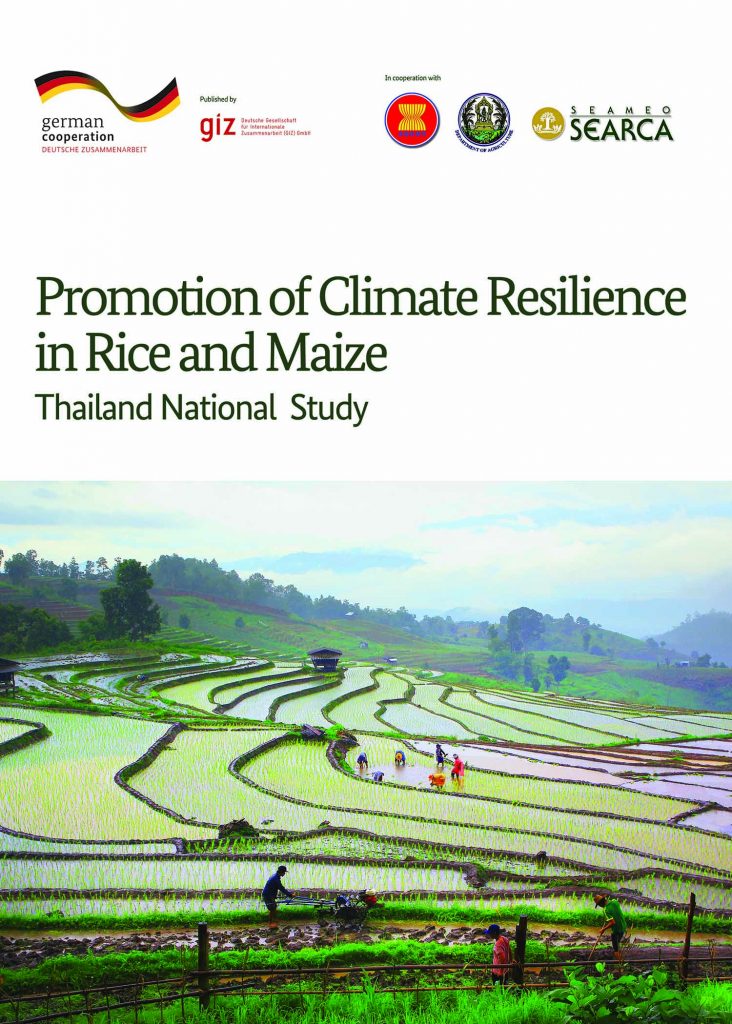
Climate change poses a serious threat to Thailand’s agriculture sector in which its severity and occurrence becomes more intense and frequent compared in the past. Flood and drought, extreme and uncertain climate events, outbreak of pests and diseases are just some of the climate change related hazards that continue to impact Thailand. Climate variability introduces risks and uncertainty into the agricultural systems which is a major concern for marginalized smallholder farmers. In the promotion of climate resilience in rice, Thailand has identified three good practices, namely: crop calendar, Alternate Wetting and Drying (AWD) technique; and the Remote Sensing Based Information and Insurance for Crops in Emerging Economies (RIICE) technology using combination of Synthetic Aperture Radar (SAR) remote sensing and crop modeling for government policy intervention and crop insurance programme. Whereas for maize, two climate resilience good practices identified namely the establishment of maize seed villages in major maize producing areas and breeding for drought tolerant varieties.